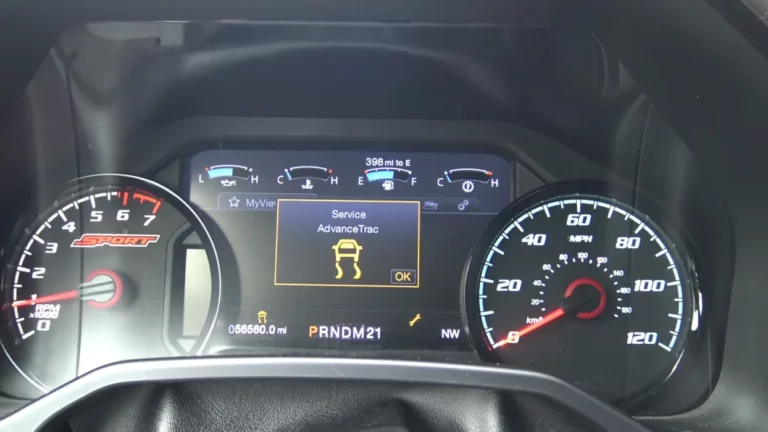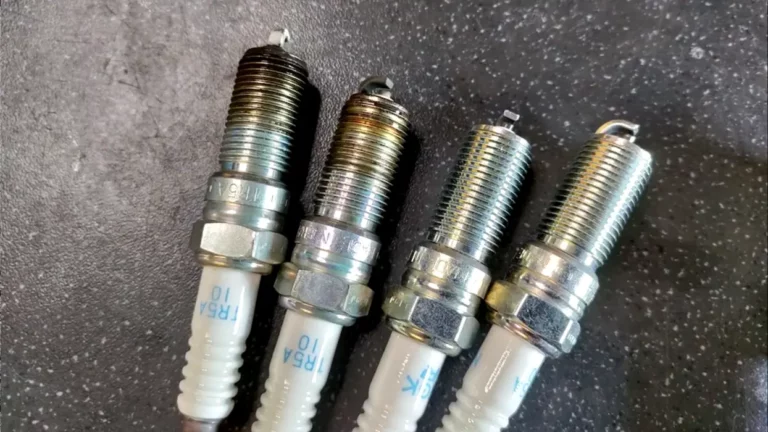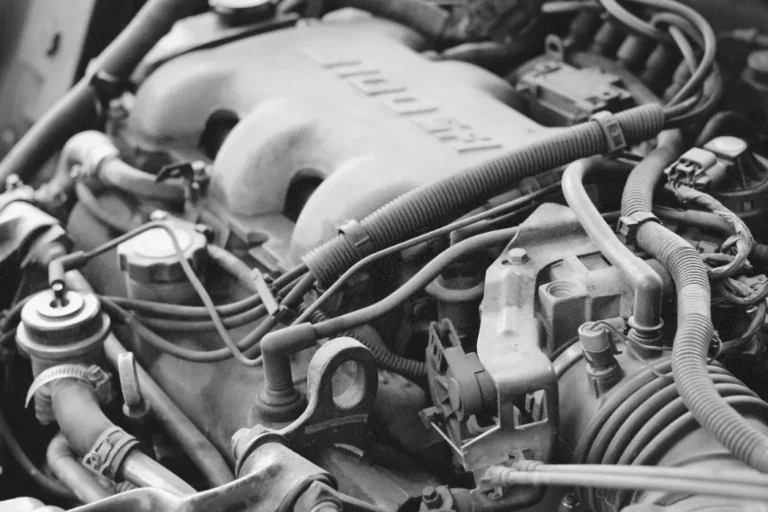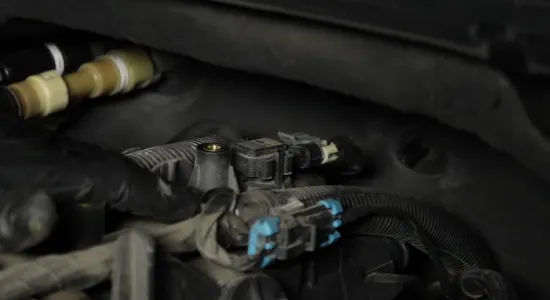Strong Exhaust Smell When Idling [6 Issues To Look Out For]
Vehicles having certain issues are normal. But some of them are crucial to identify fast and fix.
A strong exhaust smell when the car is idling is a very concerning issue. This indicates a problem with the vehicle’s components relating to its engine and other vital parts.
But several issues can cause such a problem. Thankfully, each and every one of such issues has distinctive symptoms and diagnoses. Even though the solution to such problems might not be cost-friendly, we will try our best to recommend reliable and economical products and services.
Causes of Strong Exhaust Smell When Idling
Exhaust smell in the interior of the car can be dangerous. If the exhaust pipe has a leak, it could lead to toxic components flowing inside your vehicle. They include gases like hydrogen sulfide and carbon monoxide, among others.
Both these gases can have life-threatening effects on our health if consumed in excess, especially carbon monoxide. So when we detect unpleasant odors in our car, it is important to pay immediate attention. The inability to do so might have severe effects on both our and our vehicle’s health.
So what is the first step when we detect a strong exhaust smell when idling our car? It is to observe the symptoms, pinpoint the causes, and make an honest attempt to fix them.
The severe smell when idling has various causes, such as
- Faulty catalytic converter
- Leakage in the exhaust pipe
- The air-to-fuel ratio is higher than recommended
- Broken oil cap
- Damaged gasket
- Damaged door seals
All of these issues’ diagnoses, causes, and prevention will be thoroughly discussed in the contents of the article down below.
Related Post:Turn Signal Not Working But Bulb is Good –
Faulty Catalytic Converter Causing Foul Odor
The catalytic converter is one of the most vital components in a car. Both for the good health of our environment and ourselves. This converter is responsible for converting harmful components produced during fuel burning into harmless gases.
The harmful gases, if not catalytically converted, can have a foul odor. The sulfur produced during burning is converted to sulfur dioxide, which is odorless. But hydrogen sulfide is instead produced when the catalytic converter is faulty.
The hydrogen sulfide contributes to the rotten egg-like odor. And is the first major symptom of a faulty catalytic converter.
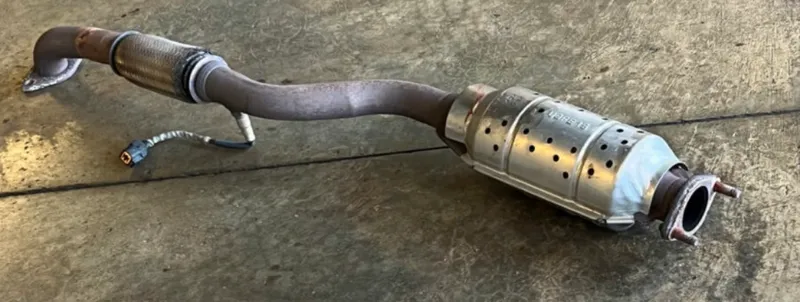
Symptoms
- Rattle from the engine
- Engine unable to start
- Rotten egg-like odor
Solution
If the catalytic convert has deteriorated, it must be changed or fixed by a professional. But catalytic converters do have a history of deteriorating, and that is too fast.
Hence we suggest using a high-quality catalytic converter (our pick) to ensure your car does not run into a faulty converter in the far future. And using fuel (our pick) for proper sustenance to your new converter.
Leakage in The Exhaust Pipe
The exhaust pipe is responsible for exhausting the pollutants formed during the burning of fuel in your car’s engine. A faulty exhaust pipe would result in unpleasant odors and harmful gases getting inside your car.
The exhaust pipe can get clogged or form a leak over time during use. Especially, if we are using cheap quality oil as fuel. It gets clogged over time regardless, but the process is much faster on cheaper oils.
Symptoms
- Hissing Sounds from the exhaust
- Fuel efficiency suddenly sharply dropping
- Gasoline smell inside the car
Solution
If your exhaust pipe already has a leakage, there are no other viable options except to change it with a new one. But to prevent such a situation make sure to clean the exhaust pipe occasionally to prevent any clogging inside that may ultimately result in leakages.
An overall diagram of the exhaust pipe, catalytic converter, and connecting parts are given below to ease your understanding.
Air-To-Fuel Ratio is Higher Than Recommended
A higher air-to-fuel ratio normally contributes to unburned fuel being dumped onto your exhaust pipe. This is generally caused by a faulty airflow or emission sensor. This unburned fuel could very well be the reason for the gas-like smell on the interior of your car.
Symptoms
- Heating even when idling
- Accelerating abnormally quickly
- Black smoke from the exhaust
- Backfiring
Solution
To achieve the best possible air-to-fuel ratio, it is recommended to research the engine’s needs of your vehicle. Still, if you are having a problem maintaining the proper air-to-fuel ratio, maybe see an experienced mechanic.
Broken Oil Cap In Your Car
The oil cap secures the oil inside the fuel tank. It prevents the oil from flowing outside or getting contaminated. A broken oil cap is not a new problem to car owners but rather a pretty known issue.
A broken oil cap is a very viable issue for bad odors sneaking inside the car.
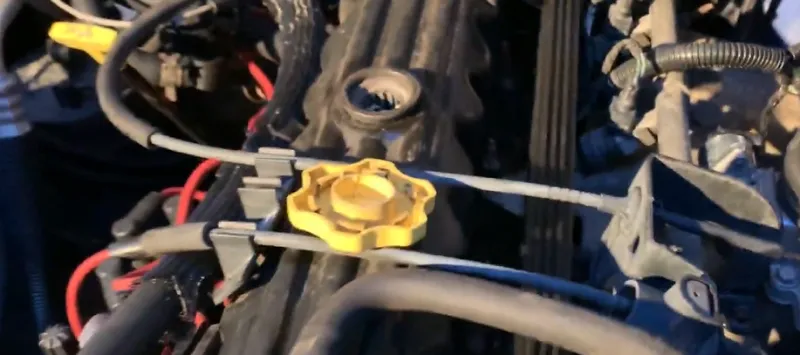
Symptoms
- Oil leaking
- Check Engine Light is on
Solution
Do a routine check of the oil caps and replace them if faulty asap to prevent any further damage to your vehicle.
Additionally, here is a video to help you replace your oil cap if necessary
Damaged Gasket [An Issue Often Ignored]
A gasket or rather also known as an O-ring, is more often than not deemed unimportant. But this could very well be the cause of the ‘gas-like’ smell inside your car.
The gasket is located underneath the oil cap and serves the purpose of completely sealing it. Hence a damaged gasket would be unable to seal the odors of fuel properly. Additionally, since it is located just under the passenger’s windshield, the leaky gas-like smell would spread quickly.
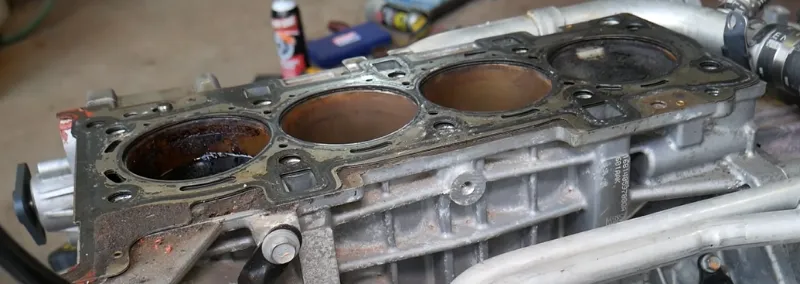
Symptoms
- Operating at high temperature
- Contact with improper and cheap fuel
- Not proper gland design
Solution
Replacing an O-ring (our pick) is very inexpensive but should be done asap to prevent any further damage from happening.
Using high-quality gaskets and proper fuel would prevent your gasket from getting damaged in the far future. Checking your oil ring and observing any excess traces of oil on the valve cover would give you a heads-up if your gasket is damaged.
A table of the most recognized gaskets and their prices are given down below
| Product | Pricing ($) |
| Kalrez® O-Rings | 5.19 |
| Parker O-Rings | 1.8 |
| O-Rings FFKM | 17.89 |
Related Post: Reasons Why Oil In Coolant Reservoir But Car Not Overheating
Damaged Door Seals
Door seals have a predominant record of smelling like gas when deteriorated. The alarming fact is, depending on the door seal, it might contain a significant amount of carbon monoxide. Hence, it is important to give immediate attention to damaged door seals.
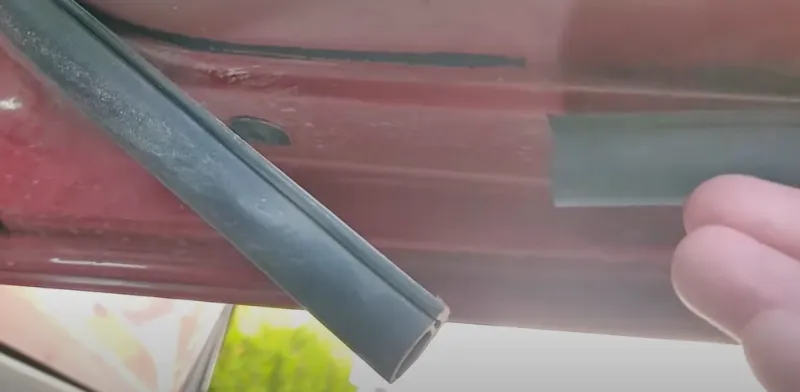
Symptoms
- Exhaust or gas-like smell near the door
Solution
Replace it with a higher-quality door seal to prevent deterioration in the near future.
Frequently Asked Questions (FAQs)
Here we will discuss the most frequently asked questions about this topic in brief.
Does the car engine running hot contribute to the exhaust smell in the interior?
Engine running exceedingly hot results in the catalytic converter and the oil cap worsening quicker. So even though it does not directly contribute to the exhaust smell, it is wearing down the components that do.
How to understand if any exhaust smell inside the car contains carbon monoxide?
Well, there is no real way of telling that. Carbon monoxide is both odorless and colorless and can only be detected by a sensor. So if the exhaust odor is frequent, it is recommended to invest in a carbon monoxide detector.
Does using more expensive and premium oil prevent exhaust smell?
Using premium oil would help the components in your vehicle operating smoothly. Hence, it would increase the longevity of your vehicle and its components. Making them less vulnerable to deterioration and producing an exhaust smell in the long run.
Conclusion
We have talked at great length about the topic of the strong exhaust smell when idling. Well, there are a number of issues that contribute to such problems. Such as problems with the catalytic converter, oil cap, O-rings, and many more as discussed in the above topic.
Maintaining the good health of your vehicle may be hard but it is worth it at the end of the day. As you can see, an odor from the exhaust is capable of keeping our health at stake. Anyways, always drive safe and keep everyone safe as well.
Related Posts:
- Engine Temp Spikes and then Returns to Normal: Causes and Fixes
- Reasons Why Oil In Coolant Reservoir But Car Not Overheating
- Trunk Won’t Open With Remote Or Button: 7 Ways To Open!
- Turn Signal Not Working But Bulb is Good – Fix Your Car’s Blinker Issues
- Popping Sound When Turning the Steering Wheel at Slow Speed:

